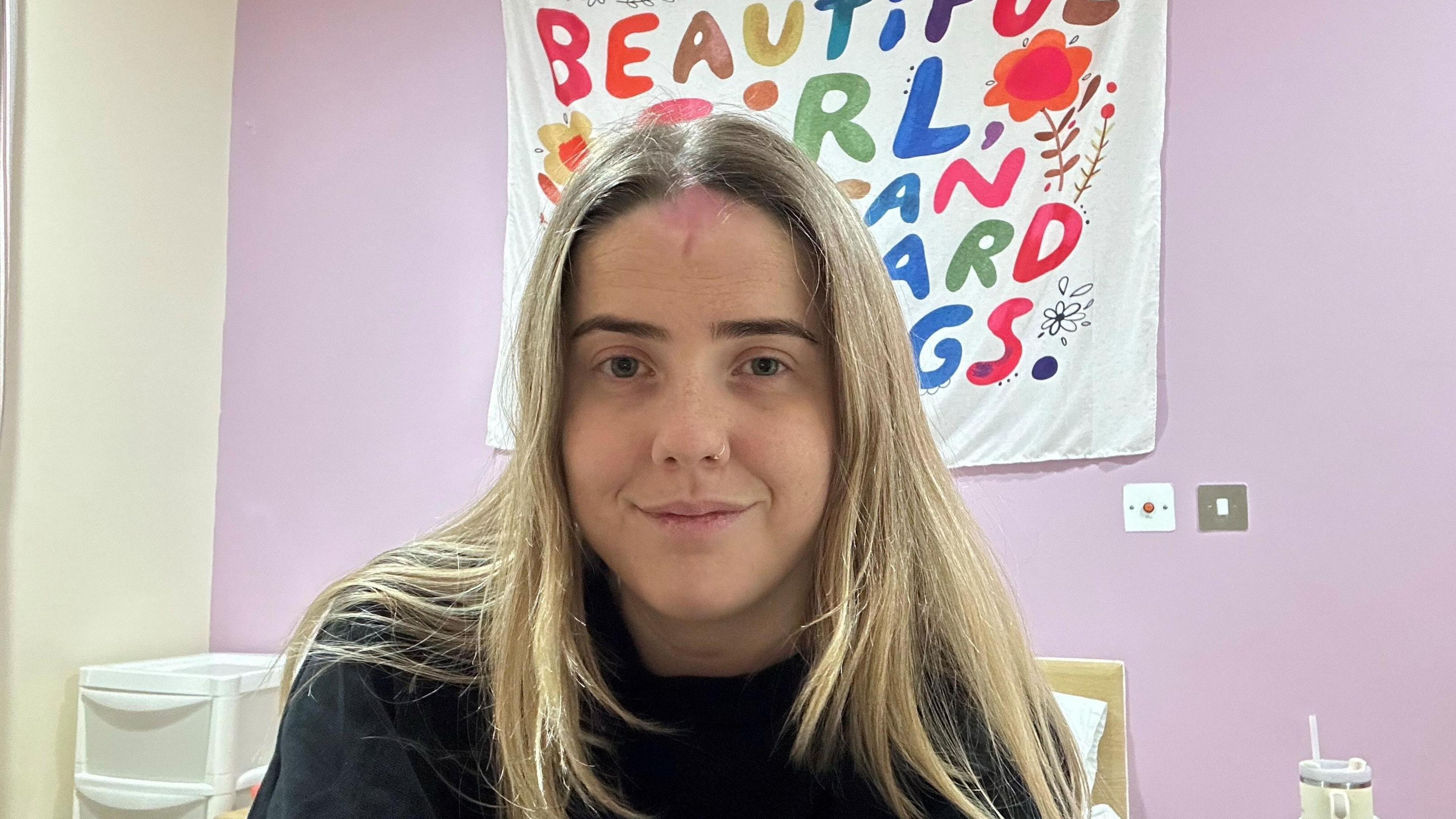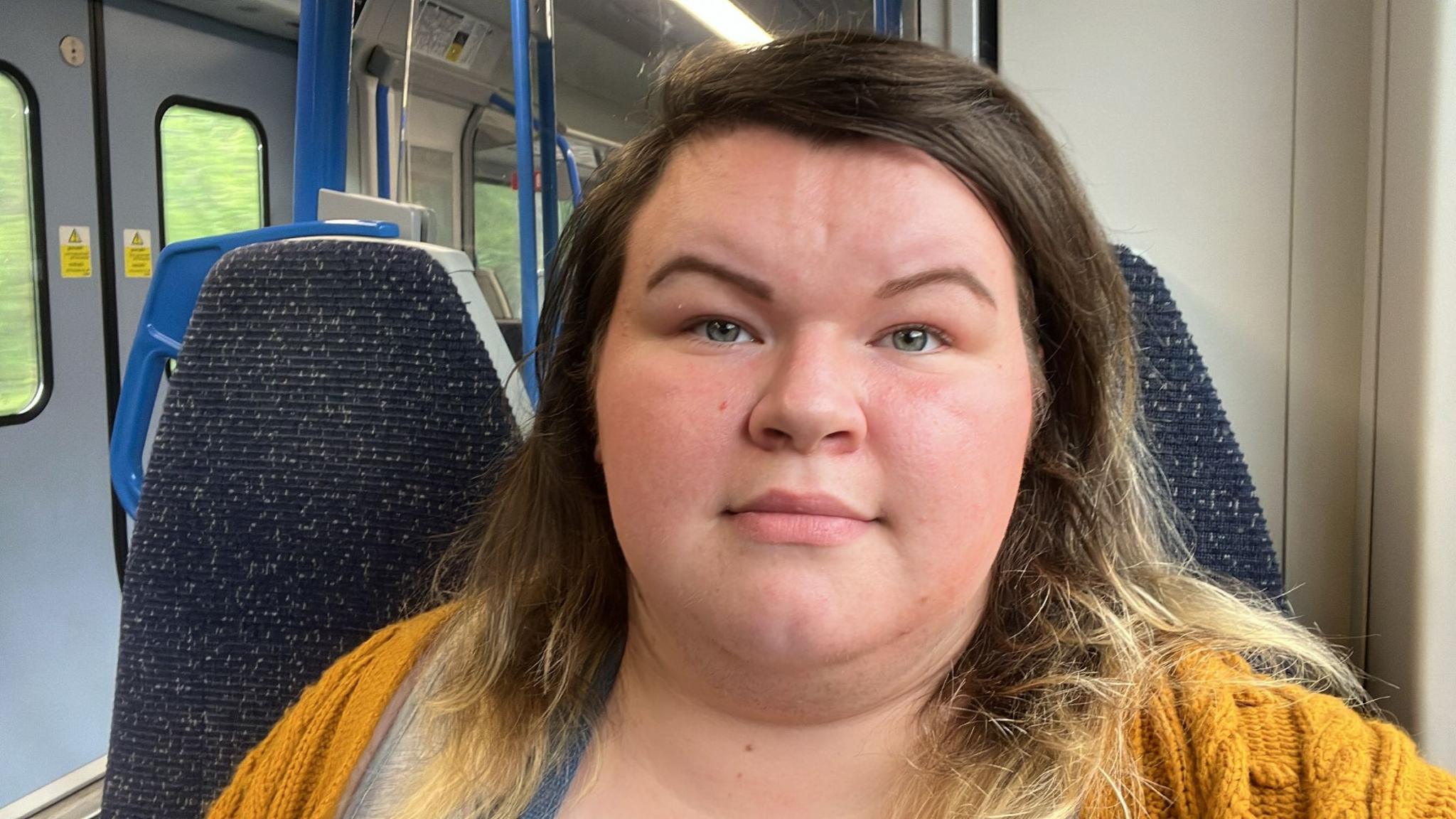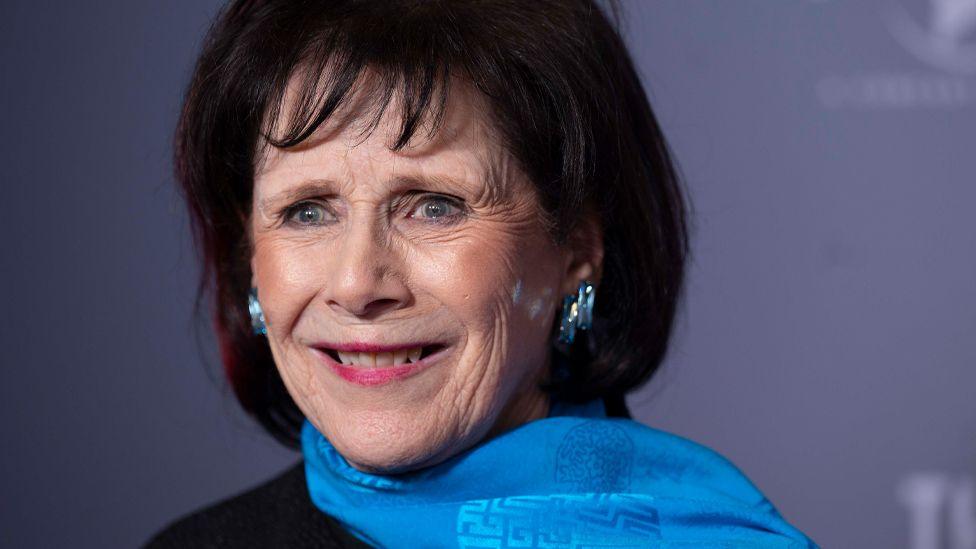'The only hospital bed was 248 miles from home'

Rachel said she was lucky to have a loving family who wanted to visit when she was at a distant hospital, but she would go months without seeing them
- Published
More people with mental health struggles are being sent far from home for in-patient treatment, despite ministers previously pledging to abolish the practice by 2021.
Experts say these long distance placements can result in lengthier and less effective stays in mental health units.
NHS data, external shows the practice almost halved between 2018-19 and 2022-23 but rose 25% in 2023-24.
The government said it would fix the “broken system”.
‘Dehumanising’
Rachel has spent years in and out of hospital with post-traumatic stress disorder and depression. When she was sectioned in 2021, the nearest available bed was 248 miles (399km) away.
She was moved three more times, with each placement being four to five hours away from home.
“It feels quite dehumanising that you're just a number that they pick up and drop somewhere in the country,” she said.
Despite feeling isolated, Rachel told her family not to waste money travelling when she could only have visitors for brief periods. “I just felt incredibly guilty,” she said.
Rachel said the care she received saved her life, but wondered if she would have recovered faster closer to home.
In April 2024, she was discharged. After almost four months out of hospital, Rachel said it had been difficult at times but she had enjoyed experiences with loved ones and been on a family holiday.
“I'm doing so well,” she said. “I'm living a life that I now see as worth living.”
What is an inappropriate out of area placement?
An inappropriate out-of-area placement (OAP) happens when a person is admitted to an inpatient unit outside their area because no bed is available locally.
Dr Lade Smith, president of the Royal College of Psychiatrists, said such placements could slow recovery.
She said when people left hospital, they might have less support because they had not been able to maintain relationships with friends and family.

Dr Lade Smith argued there were clinical, ethical and moral and economic reasons to end OAPs
In 2016, the government said it wanted to eliminate OAPs by 2020-21, external. Their use fell in the years that followed, but rose by 25% in 2023-24 to reach 5,500.
Dr Smith said it showed “people took their eye off the ball”. She said financial and housing pressures and the pandemic had led to a rise in people needing care, although “there were already ongoing problems”.
An NHS spokesperson said fewer beds had been available as some patients ready to leave hospital were still waiting for housing support.
“It is unacceptable for patients to be treated away from home,” they said. “NHS England has committed to work towards eliminating OAPs and is supporting systems across the country to meet this ambition.”
Where were the biggest rises?
The Greater Manchester area had the largest increases in the year to March 2024.
Dr Clair Lake, NHS Greater Manchester’s deputy medical director, said they wanted everyone in the area to “have access to safe mental health care close to home”.
She called reducing OAPs a priority and said although recent months had seen a “significant reduction”, there was more to do.
She said to ensure people could receive the right care locally, the focus was on supporting good mental health, improving community services and strengthening crisis response services to avoid admission where appropriate.
The work involved the wider NHS, local authorities, housing providers and the voluntary sector, she added.
'Like a cage'

Nikki believes a focus on prevention rather than crisis care could help stop some mental health issues from escalating
Nikki, now 27, was put in hospitals far from home after suffering a trauma and trying to take her life at 14.
She said being sent to a hospital 28 miles (45km) from her London home was deeply distressing. “It looked like a big cage. They said, ‘Your dad can’t be with you’.”
In 2014, she spent five weeks in an OAP. “It was so difficult for my dad and my friends to get to, because it was in the middle of nowhere,” she said.
She described it as an added cost when money had been tight, putting more stress on her family.
Nikki said her dad felt guilty he could not visit more, adding: “He had no support in getting there. I felt really lonely and isolated, I felt like a freak... like, what is wrong with me?”
If you have been affected by the issues in this story, help and support is available via the BBC Action Line.
OAPs cost NHS England £164m in 2023-24, up £49m (43%) from 2022-23.
Dr Smith described the amount spent as “eye-watering” and said greater use of private beds had been a factor.
Mental health charity SANE wants greater emotional and financial support for families impacted by OAPs.
Founder and CEO Marjorie Wallace said: “We call on the government to ensure that every trust has a sufficient number of beds available to take in people in crisis, so they do not need to drive them around the countryside like unwanted parcels.”
She added OAPs may deal with the current crisis “but it doesn’t make economic sense, let alone humane sense”.

Marjorie Wallace, who founded mental health charity SANE, said people discharged too early were at risk of being readmitted to “go through the whole cycle again”
Gemma Byrne, policy and campaigns manager for Mind, said the mental health charity had been "really pleased" to see planned reforms highlighted in The King's Speech in July.
They included a mental health bill to tighten rules on sectioning people as well as a commitment to reduce waiting times and focus on prevention to improve mental health provision for young people.
She said community mental health and social care services were “completely overstretched and underfunded” and needed investment “so that people aren’t getting to the point where they’re so unwell they have to be in hospital”.
A Department of Health and Social Care spokesperson said the government would “fix the broken system”.
“We will go further than ever to prioritise mental health, and that starts with updating the Mental Health Act, helping people to get back on their feet and ensuring that care is appropriate, proportionate and compassionate,” they said.
Additional reporting by Lauren Woodhead
'Being far away from family made recovery harder'
- Published1 August 2024
'No-one could visit me, no-one could bring me clean clothes'
- Published17 June 2022
Non-judgemental mental health group 'saving lives'
- Published13 July 2024